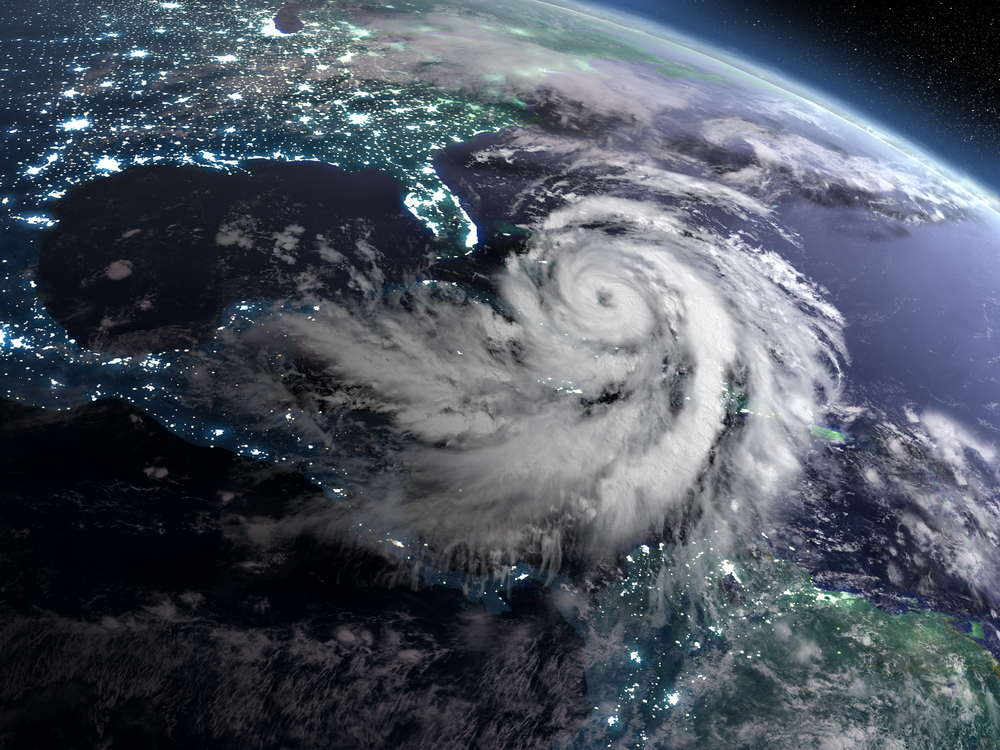2021 Hurricane Season Above Average

According to a recent report, The Colorado State University (CSU) Tropical Meteorology Project Team predicts that we will have an “above average” Atlantic hurricane season this year, with 17 named storms. This number includes eight hurricanes, four of which could become major hurricanes.
The team used models that incorporate 40 years of historical hurricane data while also considering conditions such as:
- Sea surface temperatures
- Sea level pressures
- Vertical wind shear levels
- El Niño
The report highlighted that the likely absence of El Nino this year is a primary driver in the above average storm season. El Nino is simply a climate pattern in the Pacific Ocean that breaks up normal conditions, in El Nino years hurricane frequency declines. This is often due to increased wind shear which often tears apart hurricanes as they form.
According to CSU, this hurricane season will resemble those in 1996, 2001, 2008, 2011 and 2017. All of these seasons showed above average hurricane activity. CSU is predicting that this hurricane season will be roughly 140% of the average season. CSU will issue updates to their hurricane forecast on June 3, July 8 and Aug. 5.
NOAA Will Predict Hurricane Season in May
The National Oceanic and Atmospheric Administration (NOAA) will issue its 2021 hurricane season outlook in late May 2021.
The NOAA will use new numbers this year for what is considered an “average” season. This year an “average” season will consist of 14 named storms and seven hurricanes. These numbers include three major hurricanes. NOAA previously considered an “average” season to be 12 named storms, six hurricanes and 3 major hurricanes.
The definition of “average” has changed because NOAA is now using a 30-year period of record from 1991 to 2020 while previously it used storms from 1981 to 2010.
A “major hurricane” is considered one that hits Category 3, 4 or 5 based on the Saffir-Simpson Hurricane Wind Scale. Hurricanes that meet these criteria all have sustained winds above 111 miles per hour. These types of wind speeds can cause catastrophic damage including power outages. Damage can also leave these residential areas uninhabitable for long periods of time.
The NOAA typically updates the statistics it uses for their prediction models once a decade. “This update allows our meteorologists to make forecasts for the hurricane season with the most relevant climate statistics taken into consideration,” said Michael Farrar, director of NOAA’s National Centers for Environmental Prediction, in a recently released statement.
Hurricane season typically runs from June 1 to Nov. 30.
Tips to Help Prepare for Hurricane Season
FEMA offers the following tips to prepare for hurricane season:
- Sign up for local alerts and warnings
- Consider buying a NOAA Weather Radio
- Learn your local evacuation routes and designate a place to stay and meet family who are separated during the storm
- Stock up on emergency supplies
- Put a “go-bag” together that is packed with necessities, clothes as well as medications
- Keep an emergency contact list handy which includes numbers for family, work, school and your doctors
- Prepare your home, this may include reinforcing or strengthening doors, windows, walls and roofs. Bring lightweight objects inside. Anchor objects you cannot bring inside.
- Put important documents in a waterproof container
Are You Properly Insured for a Hurricane?
In order to be fully protected against hurricane damage you must be carrying a number of insurance policies. Here is a quick overview of the various insurance coverages that come into play with hurricane damage:
Homeowners insurance: A standard homeowners policy will cover certain types of damage from a hurricane but not all. In many states, homeowners insurance will cover wind damage as well as water damage that is not caused by flooding. In some states, wind damage may be excluded. Check your policy for details.
Flood insurance: Flood damage is excluded from most standard homeowners policies so if your home is in danger of being flooded you will need a separate flood insurance policy. You can purchase a flood insurance policy from the National Flood Insurance Program (NFIP) or a private insurance company.
Wind insurance: In some coastal states, Texas is an example, a standard homeowner policy may exclude wind damage. You will need to purchase a wind insurance endorsement or a separate wind policy. Check with your insurer to verify if you need separate wind coverage.
2021 Hurricane Names
- Ana
- Bill
- Claudette
- Danny
- Elsa
- Fred
- Grace
- Henri
- Ida
- Julian
- Kate
- Larry
- Mindy
- Nicholas
- Odette
- Peter
- Rose
- Sam
- Teresa
- Victor
- Wanda
